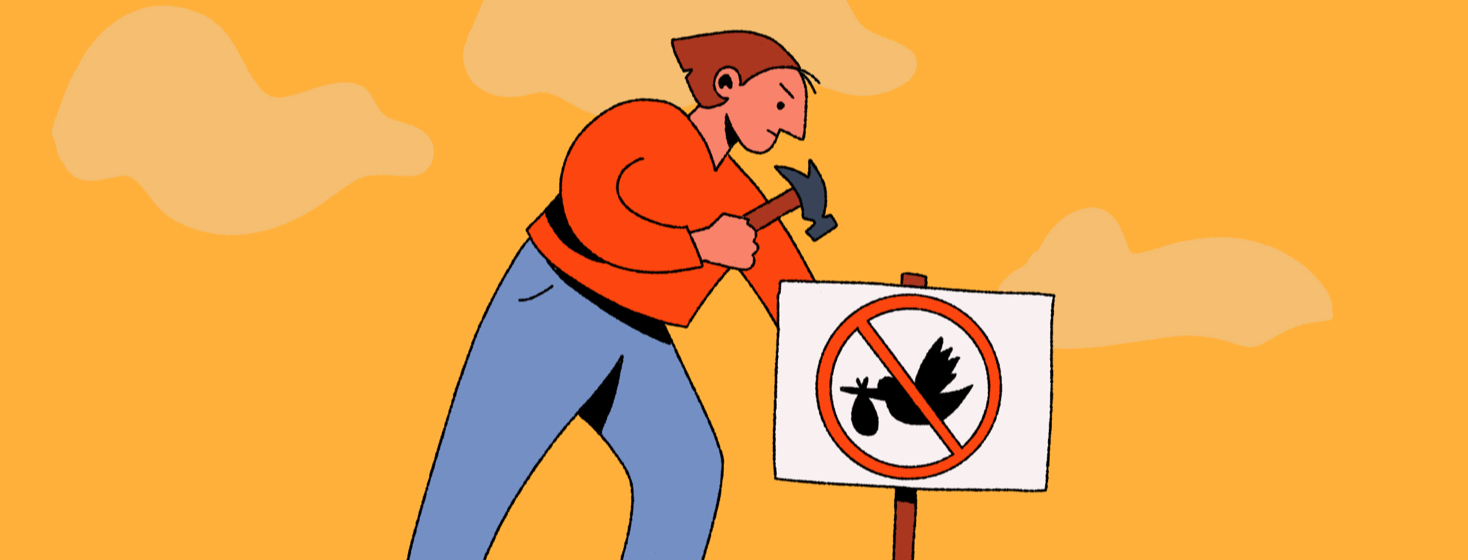How I Learned To Say "I Don't Owe You A Baby."
Three years ago, I was a guest at a beautiful summer wedding, in a long-term relationship with someone I loved very much. It was the day before the ceremony, and at 9 am, an eager relative asked me: “so, when are you two going to give us a baby?”
They looked at me with a huge grin, eyes full of eager expectation. At the receiving end of the question, I was speechless.
That was not the first time I had to deal with that sort of question, and yet, I struggled to come up with a response.
A tough question with a tough answer
In hindsight, I can recognize the inappropriateness of the question. It's almost absurd.
Did they expect me to suddenly say, “actually, right this minute, I am pregnant!”. Or were they seeking reassurance that we were actively trying to make a baby?
At the time, I felt mostly two things: embarrassment and guilt.
I felt like I was letting down others. "All" they wanted was to see me holding a healthy baby, and I knew I probably couldn’t do it.
Of course, I had envisioned myself happily pregnant on many occasions. I’d see a glowing pregnant woman and wonder whether I would look that good and happy with a child.
But I have endometriosis.
Babies are a complicated part of an unsolvable equation when you live with a complex, relentless version of this disease. That's when the embarrassment kicks in.
The shame of not being able to have children
It's hard to escape that feeling. Fast forward, and I am a single woman on dating apps encouraging me to express our needs and wants.
But anything I aspire to has to match with what others want from the world of modern dating. And there they are, men who have had children, are now separated, yet somehow want more children.
Being fertile is a sought-after quality, and being willing to give someone a baby is a bonus. Swipe right if you’re a fecund woman happy to produce children for the joy of others.
Managing these circumstances with grace
As a rational, independent person, I can repeat “my body, my choice” ad infinitum. But when people you like place your value on the ability to give them kids, it can break you a little.
It's OK if you feel like crying, wanting to hide, or experiencing a tiny bit of anger when faced with invasive questions about your fertility.
Because I felt all of the above. And that's when I put years of mindfulness practice into work. I came up with a grounding mantra and a few of them: "I am not here to give anyone a baby," "I don't owe them a baby," and "Please stay out of my uterus."
These mantras are affirmations, meaning I can choose to share them or keep them to myself. It's about reminding myself that what I want matters, that my body is going through is my own business and no one else's.
The mantras cement that my guilt and shame are brought on by the lack of manners and social awareness of others. Shouldn't they feel embarrassed to be causing such distress?
I owe nothing to anyone except myself
I am here to take care of my health, enjoy my life, work hard and buy my dog all the toys. Do the things I want to do.
Whether babies are part of that equation is my business. I don't need to improve at handling invasive questions; others need to stop asking them.
It may have taken me a while to feel this confident. Yet, finally, I am happily ready to answer any inappropriate question with a suitable "mind your own business."
I am happy to swipe left on anyone who turns tiny human beings into deal-breakers.

Join the conversation